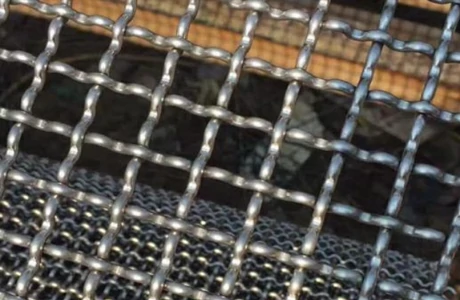nails to use for fence
Choosing the Right Nails for Your Fence
Building a fence is a substantial investment in both time and resources, and one critical aspect that often gets overlooked is the selection of nails. The type of nails you choose can greatly impact the longevity and sturdiness of your fence, making it essential to understand which nails to use for your specific fencing materials. In this article, we will explore the different types of nails suited for various fence materials and provide some tips to ensure your fence stands the test of time.
Types of Nails for Fencing
1. Galvanized Nails Galvanized nails are coated with zinc to resist rust and corrosion, making them an excellent choice for outdoor fencing applications. They are particularly suitable for wooden fences exposed to the elements. The zinc coating provides a protective barrier against moisture and other environmental factors, which can lead to premature deterioration. If you're using treated lumber, which is often soaked in chemicals that can corrode regular nails, galvanized nails are the way to go.
2. Stainless Steel Nails For those looking for the ultimate in durability and rust resistance, stainless steel nails are the best option. Although they come with a higher price tag, their resistance to corrosion is unmatched. This makes them ideal for coastal areas where saltwater can quickly corrode other types of nails. Using stainless steel nails means you won’t have to worry about the structural integrity of your fence deteriorating over time due to rust.
3. Ring Shank Nails If you're seeking superior holding power, consider using ring shank nails. These nails are designed with ridges or rings along the shaft, which provide a greater grip. This makes them ideal for securing fence boards, as they reduce the likelihood of the boards loosening or warping over time. Ring shank nails can be used in conjunction with either galvanized or stainless steel materials to maximize durability.
4. Decking Screws Although technically not nails, decking screws are worth mentioning for fencing applications, particularly in the construction of wooden fences. Decking screws are designed to withstand outdoor conditions and provide excellent holding power. They are often used in conjunction with pre-drilled holes to prevent wood from splitting, making them a good choice for various types of lumber.
nails to use for fence

Considerations for Nail Selection
When selecting nails for your fence, you should consider the following factors
- Material Compatibility Ensure the nails are compatible with the materials you are using. For instance, if you're working with treated lumber, using galvanized or stainless steel nails is recommended to avoid corrosion.
- Length and Gauge The length of the nails should be appropriate for the thickness of the materials you are nailing together. Generally, 2.5 to 3 nails are suitable for most fence boards. The gauge of the nails also matters; thicker nails (lower gauge number) provide more strength and are better for fence construction.
- Environmental Factors Take into account the environment where the fence will be installed. Areas with high humidity, rainfall, or saline conditions require more corrosion-resistant fasteners like galvanized or stainless steel.
Conclusion
Choosing the right nails for your fence is crucial for ensuring its long-term durability and stability. By selecting the appropriate type—whether it be galvanized, stainless steel, ring shank, or decking screws—you can significantly enhance the overall quality of your fence. Investing a bit of time to consider the right nails will pay off in the long run, allowing you to enjoy your fence for many years without the worry of quick deterioration or collapse. Always remember to consult local building codes and recommendations when building your fence to ensure compliance and longevity.
-
Space-Saving Chain Fence Hacks Vertical Gardening with Cyclone MeshNewsJul.16,2025
-
Innovations in Iron Nail Wire Production for Modern ConstructionNewsJul.16,2025
-
Creative Uses of Wire Netting Fence in Modern Landscape DesignNewsJul.16,2025
-
Barbed Wire Fence Innovations in Anti-Climb TechnologyNewsJul.16,2025
-
Architectural Uses of Umbrella Nails for Aesthetic Roof DesignsNewsJul.16,2025
-
Architectural Uses of Razor Barbed Wire in Secure Urban DesignNewsJul.16,2025




